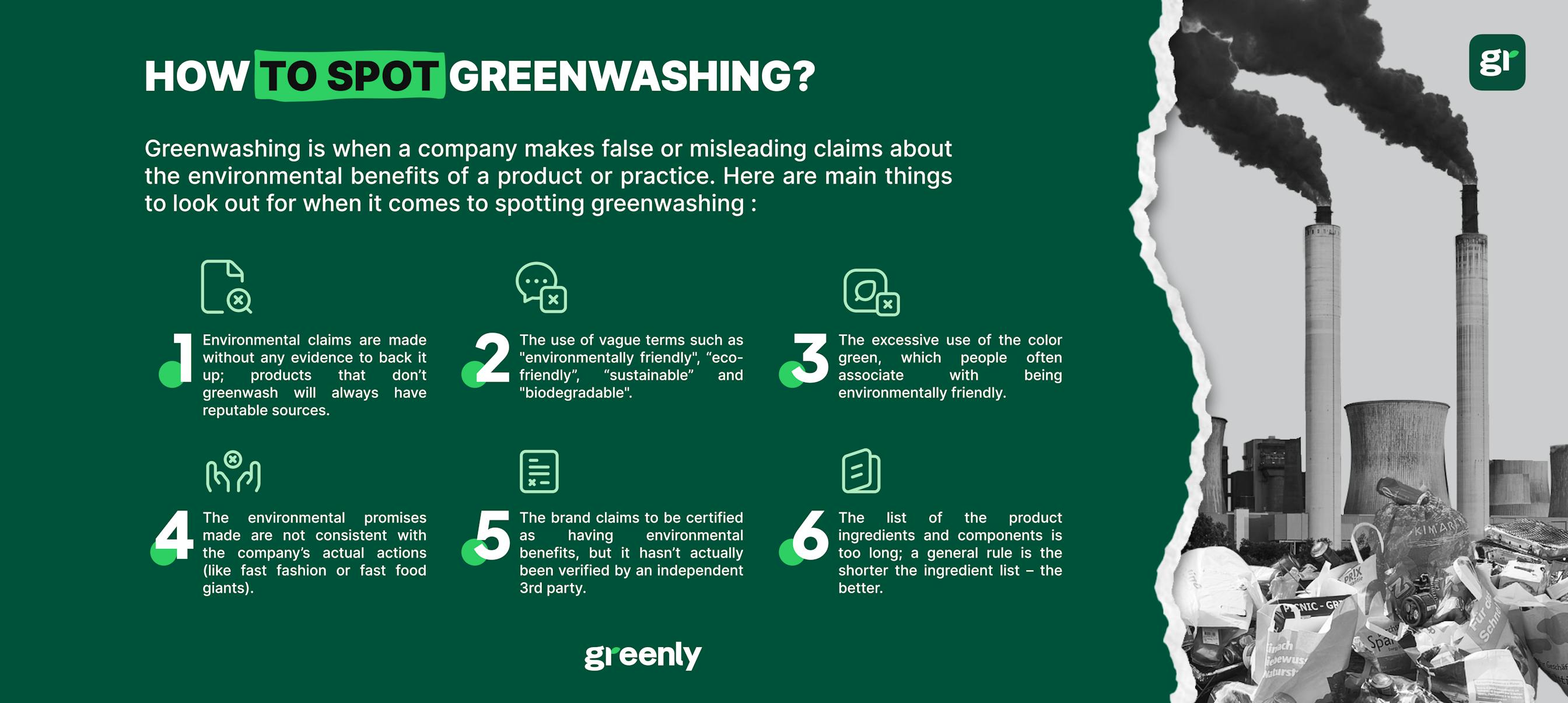
What are the 3 Pillars of Corporate Sustainability?
In this article, we'll explore what the 3 pillars of corporate responsibility are, why they're important, and how businesses can turn them into practical action.
ESG / CSR
Industries



Differences between greenwashing and greenhushing
Ways to avoid greenhushing
Which one is worse and how to mitigate each
You’ve probably already heard of greenwashing, and maybe even greenwishing – but have you heard of greenhushing?
These days, it’s almost next to impossible to please everyone – seeing as companies need to not only appeal to customers: but their investors, stakeholders, and even the media to be sure their company’s image doesn’t take a hit when trying to share their environmental progress.
Greenhushing refers to when companies choose to disclose less information than they are able to in order to prevent scrutiny from media outlets and even their own customers.
In this article, we’ll explain what greenhushing is, why it’s bad, how it could harm your company, and ways to avoid greenhushing.
Greenhushing is when companies purposefully choose to keep their environmental reports or credentials underwraps from public consumption in order to avoid potential backlash.
Even companies that have all of the viable certifications to demonstrate their genuine commitment to the environment may partake in greenhushing, out of fear that it could cause a scene.
Many people may get confused between greenwashing, greenwishing, and greenhushing – so here’s a quick recap:
The good thing about greenhushing is that these same companies are unlikely to fall subject to greenwashing, seeing as they are hesitant of any advertisements or announcements being twisted – but greenhushing comes with its own grievances.

Greenhushing is bad for companies seeing as it doesn’t promote the importance of transparency and can prevent other companies from coming forward on their environmental accomplishments as well, and ultimately – this lack of transparency could result in the downfall of their brand image alone.
The flip cards (move cursor over card to flip) below will reveal why greenhushing is bad:
The irony with greenwashing is that companies are fearful of sharing the progress they’ve made in their climate journeys out of fear of receiving negative criticism for their accomplishments, when in reality – failing to share their progress is more likely to result in poor commentary from the media or other companies.
Here are a few more reasons why greenhushing is bad for companies:
It's important to note that greenhushing is not always done with malicious intent in mind. In fact, many companies who fall subject to greenhushing do not communicate their current progress in their climate goals out of fear of scrutiny for those goals – and view staying silent as a way to continue making progress without third-party commentary, peer pressure, or interference.

Seeing as the two terms are often used interchangeably, the average person may have a difficult time discerning between greenhushing and greenwashing – but there are several examples of companies falling subject to greenhushing: such as with Neutrogena and HSBC.


Here are two examples of corporations that have fallen subject to greenhushing:
Companies which commit to using vague language are often subject to greenhushing, as it portrays saying less than the company has to share.
Neutrogena has done this with their “naturals” line, having marketed the products to have used “100% natural ingredients” when in reality – there are still synthetic ingredients and preservatives found in these products.
While this can also be used as a classic example of greenwashing, it’s also a form of greenhushing as Neutrogena has not been transparent to disclose that the product is in fact not made from 100% natural ingredients – presumably out of fear of backlash, which is hallmark trait of greenhushing.
The well-known banking corporation has been accused of greenhushing as a result of downplaying the amount of sustainable assets held by the company.
While HSBC has later claimed that this was done in order to comply with EU standards, failure to be transparent has proven to be a more personal issue on behalf of HSBC and fear of criticism from investors – making this a classic example of greenhushing.

Greenhushing, on the surface, is not as bad as greenwashing – seeing as the latter is more purposefully manipulative than greenhushing, but the issue is that greenhushing comes with its own set of problems.
Remember, the main difference between greenwashing and greenhushing is that greenwashing seeks to purposefully sway customers to think their products and services are greener than they actually are – while greenhushing refers to purposefully downplaying a company’s current sustainability efforts. In this sense, both greenwashing and greenhushing deceive investors, stakeholders, and customers – which is something greenwishing does not do.
The battle cards below will further depict the differences between greenwashing, greenhushing, and greenwishing:
Although it may seem more naive on the surface, greenhushing is sneakier than greenwashing – seeing as it can’t be as easily detected and requires carefully sleuthing. Therefore, companies that fall subject to greenhushing can be considered “sketchier” than companies that commit to greenwashing – seeing as it takes an additional amount of effort to cover up the company’s current activities and environmental efforts.
The main issue with greenwashing is that it fools customers, but the primary predicament with greenhushing is that it can mislead stakeholders – which is arguably more important when trying to run a business.
Ultimately, what makes greenhushing more concerning than greenwashing is the extended effort it takes to avoid being transparent – which is the number one factor when trying to curate greater sustainability.

There are several ways your company can prevent falling subject to greenhushing, such as creating a viable emissions reduction strategy, sustainability protocols, and vouching for transparency at all times.
Greenhushing is often a result of companies failing to be 100% honest with their customers, stakeholders, and investors regarding their environmental progress – and therefore requires complete transparency to avoid future allegations towards greenhushing.
Here are some ways that your company can avoid greenhushing:
Overall, greenhushing can be detrimental not only for your company’s reputation and future climate strategy – but it can deter others from sharing their own progress and hinder the global transparency we need to tackle climate change.
If concepts such as greenwashing, greenwishing, and greenhushing remain confusing and overwhelming to avoid – carbon accounting companies like Greenly are here to provide you with all of the resources you may need to create the most sustainable business possible.
If reading this article about greenhushing has made you interested in reducing your carbon emissions to further fight against climate change – Greenly can help you!
It can be challenging to avoid greenwashing, greenwishing, and greenhushing in your company, but don’t worry – Greenly is here to help. Click here to schedule a demo to see how Greenly can help you find ways to effectively implement and utilize green finance.
Greenly can help you make an environmental change for the better, starting with a carbon footprint assessment to know how much carbon emissions your company produces.
